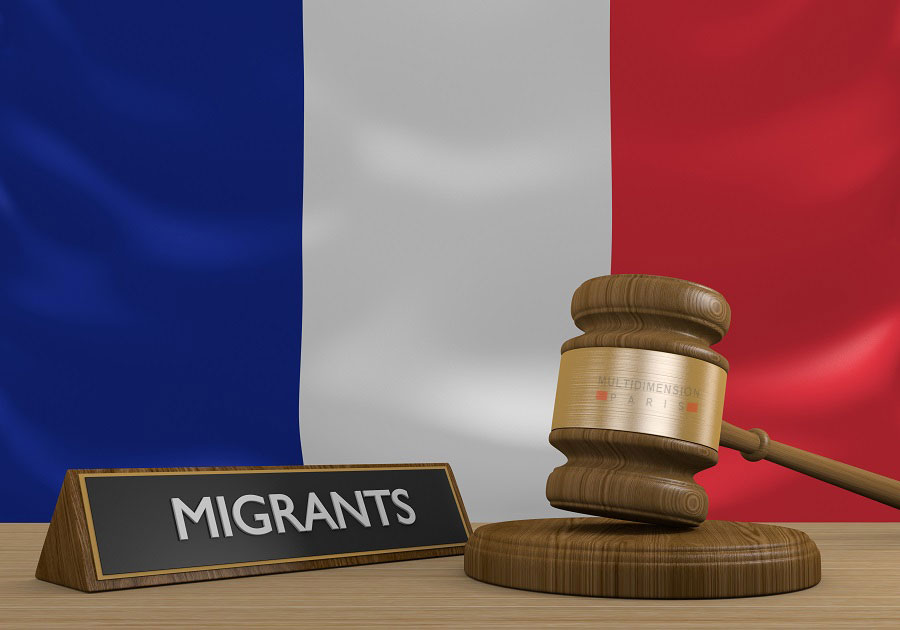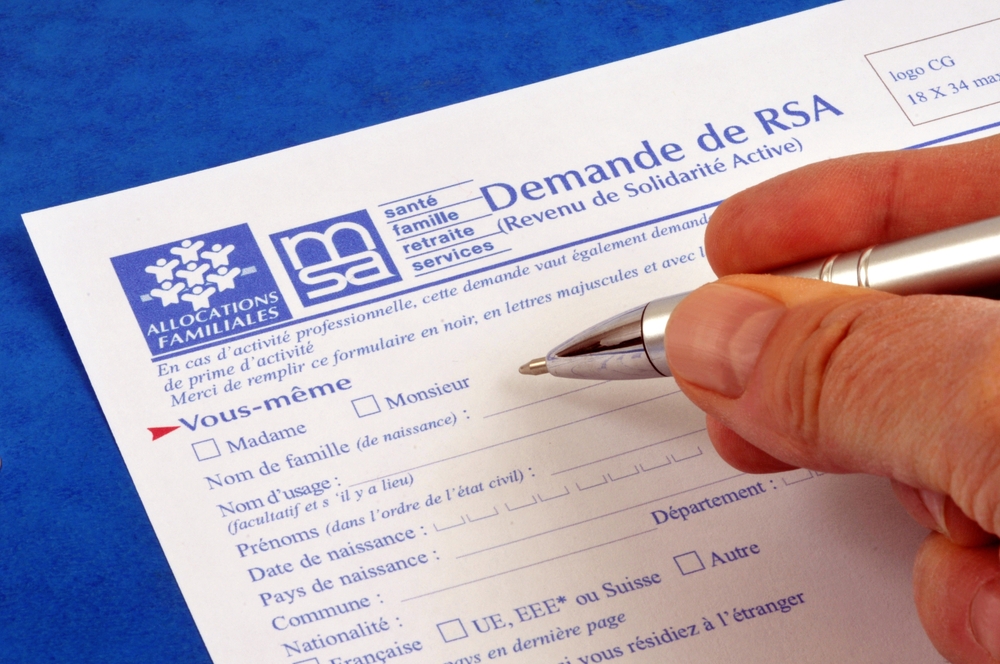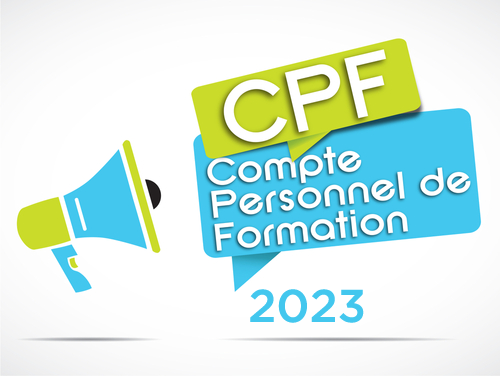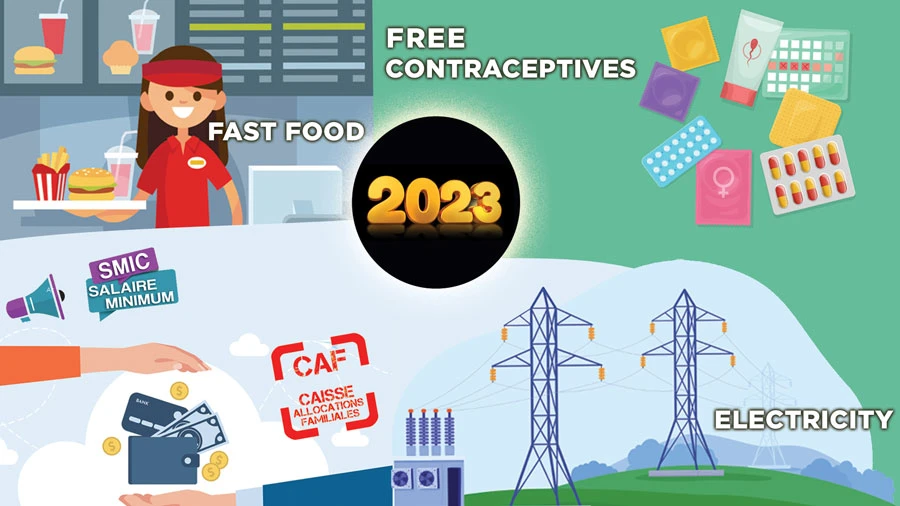
by Multidimension Paris | Feb 19, 2023 | France Today
Multidimension desk:
Proposed changes in the treatment of asylum demand
The bill provides for the creation of “Espaces France Asile”, to offer asylum seekers a simplified administrative path between the various competent administrations, namely the prefecture, the French Office for Immigration and Integration (OFII), the French Office for the Protection of Refugees and Stateless Persons (OFPRA). The government plans to deploy this system gradually, according to local needs and capacities, in order to rebalance the reception of asylum seekers in the territory.
The bill also proposes reforms to the organisation of the asylum appeal procedure before the National Court for the Right of Asylum (CNDA), in order to speed up the processing of appeals against refusals of protection by the OFPRA. The creation of the territorial chambers of the CNDA (which is today a single institution located at Montreuil) and hearing by a single judge are planned. The existing system of collegial court with three (3) persons will only be constituted if the complexity of a case justifies it.
Simplify appeal procedure against administrative decisions by the foreigners
Finally, the bill aims to simplify the procedure for cases involving the effective right of foreigners to challenge administrative decisions, most of which are “obligation to leave French territory” (OQTF). This type of case is about 40% of the work of the Administrative Court (Tribunal Administratif). Already, the use of video hearings to adjudicate claims of foreigners held in administrative detention or in waiting areas has been increased to speed up the decision making process.

by Multidimension Paris | Feb 12, 2023 | France Today
Multidimension desk:
What will change in the process of regularisation of foreign workers
The immigration bill, presented on February 1, 2023 in the Council of Ministers, plans to issue a one-year residence permit to irregular foreign workers present in the territory for at least three years who have minimum experience of eight months’ during the last 24 months in a job or a geographical area in tension. This mainly concerns the construction, IT industry, telecommunications and health sectors. Next to those are service sectors, restaurant and hotel business.
Half of more than 2.5 million foreigners working in France are concentrated in Île-de-France. This reflects in the figures for job positions in tension. At the national level 38% of domestic workers are foreigners on average which rises to 61% in Île-de-France. In the construction sector, the number of foreign workers is three times higher in Île-de-France than the national average.
This card will be tested until December 31, 2026, before its permanent validation. The executive wants to create a residence permit “of full right”. Employers will not have to take any steps, the card being equivalent to a work permit. Currently, undocumented workers can obtain an “employee” or “temporary employee” card pursuant to the “Valls” circular of November 12, 2012, but these are exceptional regularizations at the initiative of employers.
To date, the regularisation of undocumented workers therefore falls within the discretionary power of each prefect who decides sovereignly on the advisability of granting requests, which induces a difference in treatment depending on the departments and nourishes a deep feeling of injustice. For example, in certain departments, one person will be regularised, while in another department, with the same file, he/she will not be regularised.
Therefore, the principle of issuing a “resident permit of full right” will put an end to the old practice.
What are the changes proposed in the Health service sector
To meet recruitment needs in hospitals and medico-social establishments, a new multi-year “talent – medical and pharmacy professions” residence permit has been introduced. It will benefit qualified practitioners from outside the European Union, such as doctors, midwives, dental surgeons and pharmacists. At the same time, the issue of competence certificate authorizing practice in France for holders of a foreign diploma is decentralised to the regional level in order to speed up the processing of applications.
What are the changes proposed for asylum seekers
Asylum seekers from countries at high risk (countries with a high rate of international protection in France) will be able to work immediately. A list of these countries will be drawn up every year. Until now, if OFPRA has not made its decision on an application submitted for more than six months, asylum seekers can obtain a work permit.
The draft bill must now be considered by Parliament. The Senate will begin its reading in March 2023.

by Multidimension Paris | Jan 30, 2023 | France Today
Multidimension desk:
The reform of the Active Solidarity Income (RSA) focuses on the implementation of intensive support for RSA beneficiaries in the search for work. This new reform is announced on Tuesday December 12 by the Minister of Labour, Olivier Dussopt at the National Assembly.
At the start of the year, the Court of Auditors reportedly showed that since its launch 7 years ago, 42% of RSA beneficiaries are still out of work. The absence of efficient support for professional reintegration is one of the shortcomings of the Active Solidarity Income system. The new reform tends to correct this problem.
The government has selected 19 out of 43 departments to experiment with the new vocational reintegration reform for 1 year, namely Aisne, Aveyron, Bouches-du-Rhône, Côte-d’Or, Creuse, Eure, Ille-et-Vilaine, Loire-Atlantique, Loiret, Mayenne, Metropolis of Lyon, the North, Pyrénées-Atlantiques, Réunion, Seine-Saint-Denis, Somme, Vosges, Yonne and Yvelines.
This experiment will be used to present the project ‘France Travail’ to replace ‘Pôle Emploi’ in the near future. This is a project that President Emmanuel Macron announced during the presentation of his program during the presidential elections in April 2022. According to him, France Travail would be the key to leading France towards full employment.

by Multidimension Paris | Jan 20, 2023 | France Today, France Today
Multidimension desk:
As part of the Finance Bill 2023, an amendment concerning the Personal Training Account (CPF) is proposed on December 11, 2022 by the government in application of Article 49.3 of the Constitution. The purpose of the latter is to set up a “co-payment” system which will introduce financial responsibility of the participants of the training courses eligible for funding by CPF as well as the skills assessments or the validations of acquired experience ( VAE).
The CPF has replaced the individual right to training (DIF) and allows throughout working life upon entry into the labor market and during periods of unemployment, to follow training from accumulated rights. Until now, the costs were fully covered by the CPF.
Since its inception, there have been 5 million registrations for training courses, incurring a total cost of 6.7 billion euros. The rapid success has contributed to increasing the deficit of France Competences, the body that coordinates both the CPF and the apprenticeship and the emergence of numerous cases of fraud.
The idea behind this new amendment is to make employees responsible for the quality and importance of the training they intend to obtain. Thus, the employee will have to contribute to the cost of the training. Participation will be proportional to the cost of the training within the limit of a ceiling or fixed at a lump sum amount. Obviously, this also applies to VAEs and skills assessments.
Only the unemployed and those whose employers will agree to cover the costs will be exempted.
However, this amendment is much debated. According to the entourage of the Prime Minister, Elisabeth Borne, it will only be applied from the second quarter of 2023.

by Multidimension Paris | Jan 5, 2023 | France Today
Multidimension desk:
SMIC (Minimum Wages) has increased by 1.81%. Since last year, a gross total of 106€ has been raised due to several salary revaluations. At present, the amount will be 1,353€ net (1709,28€ gross).
Condoms are free in pharmacies for all those under 26 years.
Emergency contraception is free for all women without prescription.
The increase in regulated gas and electricity tariffs will be limited to 15%.
* For households, collective housing (co-ownerships, social housing, etc.), small size municipalities
For single parents, all child support allowance will be paid automatically.
In fast food restaurants, food consumed on the spot must be served in reusable containers.
Public transportation:
Due to the rise in energy prices and inflation, the prices of public transport tickets in Île-de-France have increased in 2023. Since January 1, 2023, the price of the Navigo pass (zone 1-5) has increased by 12% from €75,20 to €84.10 per month, an increase of nearly €10. The zone division is available in the interest of the commuters with varied pricing options.
New fares are the followings:
Monthly Navigo:
Zone 2-3 : 76,70 €
Zone 3-4 : 74,70 €
Zone 4-5 : 72,90 €
Zone 1-5 : 84,10 €
Weekly Navigo:
Zone 2-3 : 27,45 €
Zone 3-4 : 26,60 €
Zone 4-5 : 26,10 €
Zone 1-5 : 30,00 €
Solidarité transport (Monthly):
Zone 2-3 : 19,20 €
Zone 3-4 : 18,70 €
Zone 4-5 : 18,20 €
Zone 1-5 : 21,00 €
Annual Navigo:
Zone 2-3 : 843,70 €
Zone 3-4 : 821,70 €
Zone 4-5 : 801,90 €
Zone 1-5 : 925,10 €
Imagine R: price unchanged until the next school year, then €365 from September 2023 onwards
For t+ tickets:
Single ticket: €2.10
Ticket with Navigo Liberté+: €1.69
Pack of 10 tickets: €19.10
Access ticket on board (bus): €2.50

by Multidimension Paris | Dec 3, 2022 | France Today
Multidimension desk:
Upon entering the workforce at the age of 16 (or 15 in the case of an apprenticeship contract), the personal training account (Compte personnel de formation -CPF) opens for each individual which remains open until retirement.
The CPF can be used throughout your working life (including periods of unemployment) to undertake training for qualifications or certification.
You can create your CPF account on the website Mon Compte Formation to check the amount of money credited in your account as well as register for any professional training or degree.
The amount accumulated for working throughout the year will automatically be credited within the first three months of the following year. For example, rights acquired in 2022 will reflect in the first quarter of 2023.
If you work full time, or at least part time, your account is topped up from 500€ to a maximum of 5000€.
Remember that from 2 October 2022 you must have a France Connect + Identité Numérique via La Poste to register in Mon Compte Formation, even if you already have a France Connect account.
What kind of training courses you can get from your CPF account:
- Qualifications (diploma, professional identity, professional certificate etc.)
- Acquire basic knowledge and skills
- Enlisting someone’s help for validation of acquired experience (VAE)
- Proficiency test
- New business opening or takeover (training must be related to acquisition of skills related to business management)
- Acquiring necessary skills to volunteer in civic services or practise voluntary missions
- Funding for Driving Licence-B (for written test preparation on Highway Code and Driving License Practical Test) or Heavy Goods Vehicle Licence (C) or Public Transport Licence (D)
Conditions for availability of CPF for Driving Licence :
In this case 3 conditions must be fulfilled:
- Getting a driving licence must be related to your professional project or it will help secure your professional career.
- Must not have suspension imposed on your driving licence or ban from applying for a licence (you must give a written statement to this effect)
- Driving licence -B preparation must be done from an authorised training institute







Recent Comments